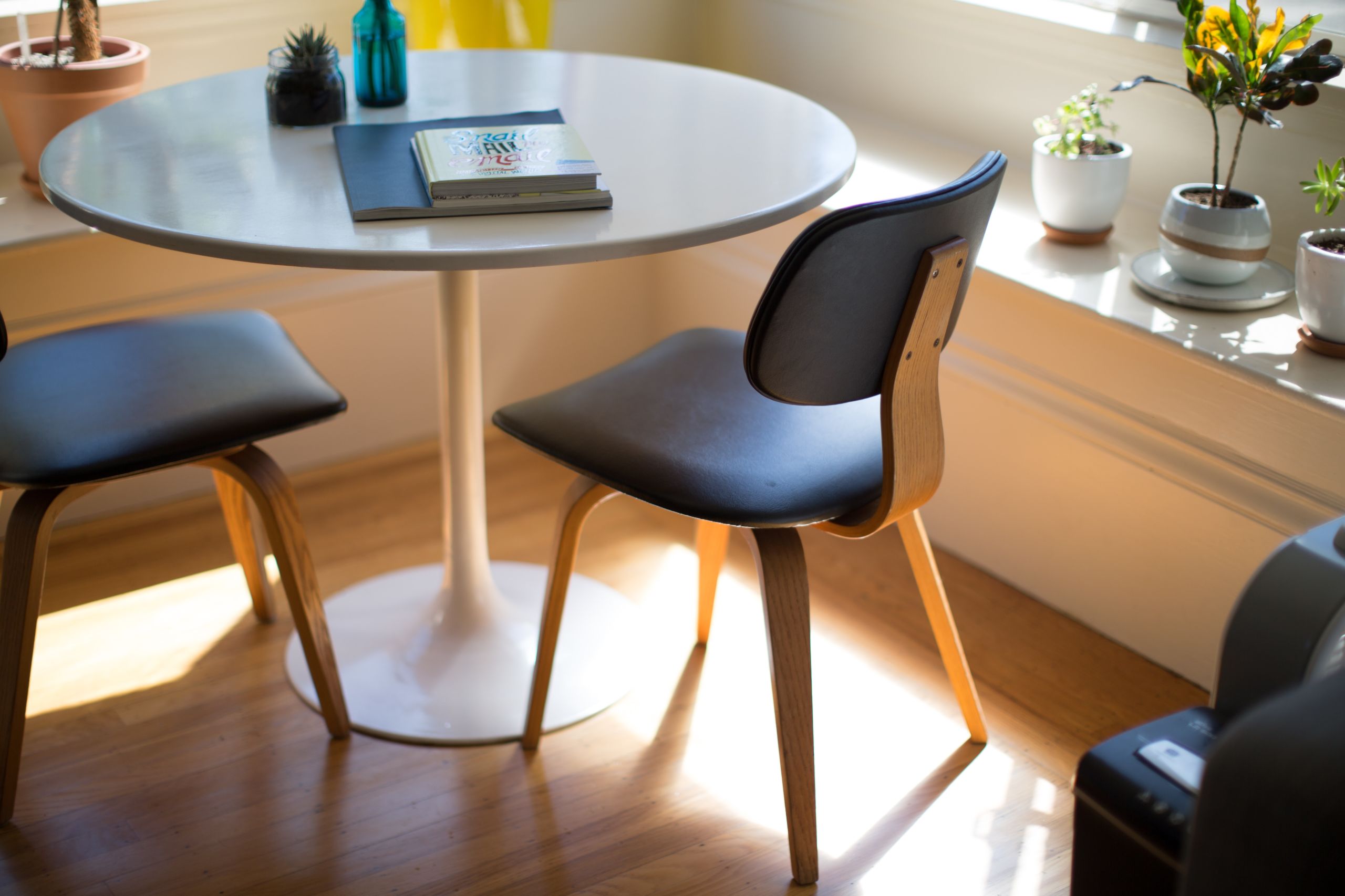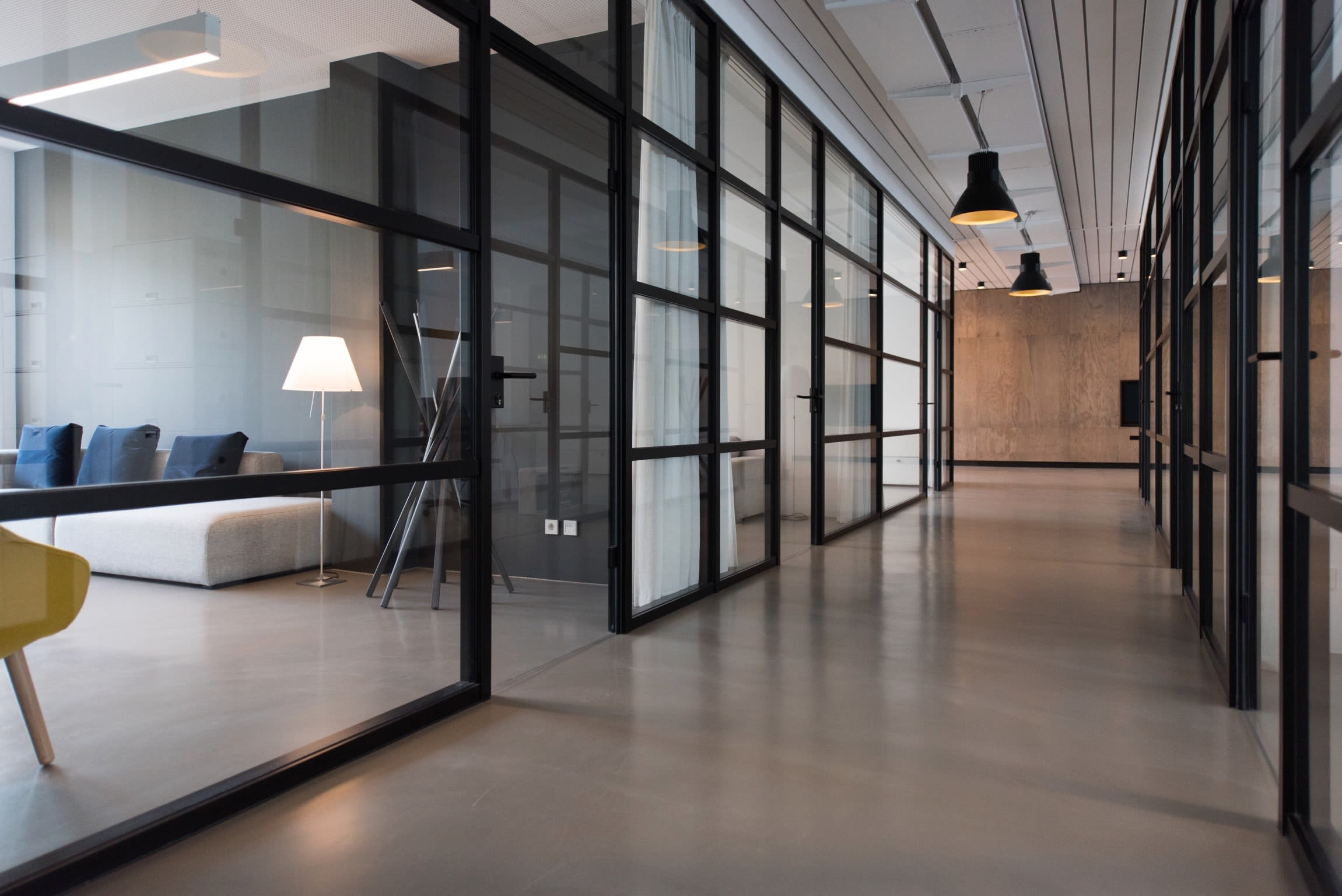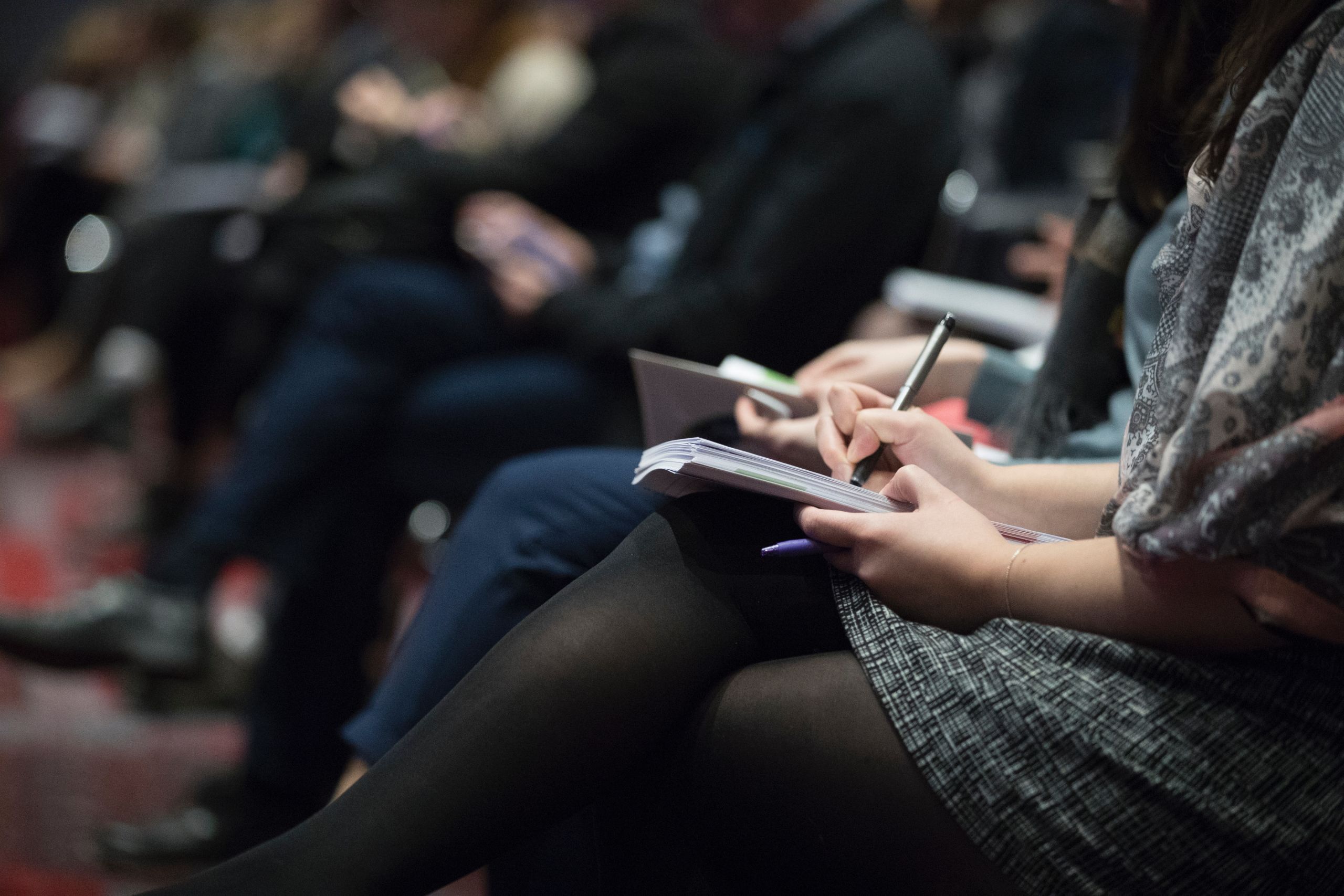Interviewing
Experiential Education

Objectives
On the completion of this module you will learn:
- What an interview is and what it achieves
- A few tips and tricks to help you before, during, and after conducting the interview.

Introduction
During the practical experience component of your associate degree (for example, during a field trip) you might be called upon to conduct an interview. While the thought of this might be daunting, there are a few tips and tricks that might help you to undertake the process with confidence.
There are several types of interview, such as a job interview, or an interview for a news report. While this module is mainly focussed on informational interviews, most of the skills apply to all types.
An informational interview is simply talking with a professional who is currently in an occupation that you are considering in order to gain information and insight about a career, industry, or company.
Interviewing usually involves an interviewer and an interviewee: someone asking for information, and the other person responding. This module concentrates on the interviewer – again, most of the skills and tips apply to both.

What is an interview?
An interview is a fairly formal conversation between people. Although they can be conducted between several people (both asking and telling), in most cases they are between two people: one who elicits facts, and the other who responds.
Are interviews always pre-arranged?
You will have seen impromptu (or opportunistic) interviews during news reports, when the reporter might approach a passer-by or witness. A formal interview, while they can be impromptu, is usually pre-arranged. Often, the questions to be asked are provided to the responder prior to the conversation, so they can prepare their answers. This is particularly useful when the subject matter is sensitive, or when specific facts might be required, such as statistics.
Are interviews always face to face?
Interviews can be conducted in many ways, for example by telephone, through Skype, by social media, or even by correspondence. Mostly, they are conducted in person, face to face.
The following are some tips and tricks to help you conduct interviews, particularly those undertaken face to face. Once you master the skill of interviewing, it can be done with confidence, and in a friendly yet professional manner, which can make the experience worthwhile and enjoyable for you as the interviewer, and for the interviewee. Some of the hints relate to preparation before the interview; some are to help during the interview; and some are to assist in the winding up process.
Activity
Please go to this YouTube video – you only need to watch up to 3 minutes 29 seconds: the last few seconds are advertising (SyracuseLaw 2012). Don and Sarah have appointments to see Mr Bob Jones. How they approach the interview illustrates many of the hints and tips mentioned above. After you watch the video, respond to the questions in the PebblePad template provided here.
The Dos and Dont's of Informational Interviews | 4:10
Tips to help you conduct interviews
Before the interview
Do your homework about the company: know a little about the company involved. Make sure you know their correct name (and how it is spelt), and as much about them as you can (what they do, what their vision is, the hierarchy of personnel).
Know a little about the person: if you know who it is you are to interview, find out a little about them. It is helpful to know their correct name (and how it is spelt), their position in the company, and their role. Keep your knowledge of them on a professional level – it is not appropriate or necessary for you to know about their private lives.
Know what it is you wish to learn: this ensures that you know exactly what you need to ask, and to utilise your and your interviewee’s time wisely.
Prepare your questions: have a list of relevant questions ready. You can do this on a form, or use them simply as your prompts. If you can, a few days before the interview let your interviewee know what your questions will be. Make them as open-ended as possible – see below.
Take a pad and pen: you will not be able to remember answers to questions. You can also record interviews (on your phone, by video) but you will need to seek permission from the interviewee well prior to the interview.
During the interview
Dress appropriately: This means being neat and tidy, and adhering to the dress code of the company, or the particular site you might be visiting. This is where a little pre-interview investigation might be useful. It also includes being careful of hygiene, but also being comfortable and at ease. It is hard to be, or even appear to be, confident and professional if your clothing and footwear are causing discomfort.
Be respectful: maintain a professional attitude. You can be friendly, offering your hand to shake, but maintain a respectful distance.
Be aware of your own non-verbal communication: keep in mind that what our bodies are saying (stance, facial movement, voice volume and so on) is part of our communication, and often tells people more than what we are saying verbally. If you have not yet done so, visit the module called Non-Verbal Communication: Body Language. If you have accessed the module before you might wish to refresh your understanding. Here is the link:
Non-Verbal Communication: Body Language
Be aware of the interviewee’s non-verbal communication: for example, if they are getting restless, or slow to answer, it might be that you might need to bring the interview to a conclusion. It also might be that they need more time to answer, or the question might not be clear or might be inappropriate. If so, rephrase it, or let the matter drop respectfully.
Request before you record: it is suggested above that you take a pen and paper – most interviewees will expect that. However, if you wish to record the interview or part of it (either voice only, or by video) it is best to ask them for permission prior to the interview. If they say they would prefer not to, then respect this wish.
Ask if you can quote: most interviewees would recognise that you are likely to quote part of their responses. However, it is best to ask them up front if it is in order.
Read direct quotes back: if you wish to directly quote the interviewee, make sure you have their words exactly as they said them – if possible, read your notes back to them and check that the words you have recorded are those that they said.
Ask open ended questions: while there will be some questions to which there is only one answer many of these, such as the person’s name, will not need asking because you will have done your homework. Rather, your questions need to be open-ended, that is, they will give the interviewee scope for considered responses. The questions might be along the lines of:
‘What qualities do I need to succeed at this type of work?’
or
‘How would you describe your company?’
or
‘Do you have any advice for someone seeking a job in this field of work?’
Obtain permission to use your interviewee’s name: if you are following up a career with the company, you can ask your interviewee to recommend someone else it may be helpful for you to contact. If so, ask your interviewee if it is in order to use their name when contacting the referral.

Ethical Considerations
Ethical considerations are critical in social research and life more generally. So, when you are engaged in an experience through the university college, you will no doubt face a dilemma of some kind. For example, when interviewing and observing industry experts and recording on what you hear and see (during a site visit, or industry panel, or pre-arranged meeting). The key ethical concerns in research (and when engaged in UC experiences and reporting on it) will generally be around:
Informed Consent - It is crucial that those who are part of the research or being observed or interviewed consent to it. This means making sure they really know what they are agreeing to i.e. what is involved, how the data will be used, who will see the data, what the purpose of the research is and the potential risks and benefits. You are not allowed to coerce anyone into research and participation must be voluntary. It is recommended that researchers develop an information sheet that communicates all of this.
Confidentiality - Protecting the identity of the participants you are collecting data on and then reporting on is important. Researchers and students should do all that is possible to de-identify data. There are several ways to do this, one for example, is to simply disguise or mask names and use a safe storage system.
Minimising Harm - You must also do everything you possibly can to minimise harm to those involved. This is typically about eliminating the risks of emotional or psychological discomfort or distress, and invading privacy or breaching rights. It is therefore important to consider the impact on participants around how you collect the data, analyse it and report on it. In bioethics research, however, you would also have to think about minimising physical risk. At this stage, bioethics projects are not part of the UTAS College associate degree programs, so we recommend you focus on the other potential impacts.
Relationships - Another key factor to consider in human research is how you develop and maintain relationships with participants, school and work colleagues, funding bodies, partners or other organisations. Values such as respect, honesty and integrity are worth upholding – at minimum.

After the interview (as soon as possible)
Say thank you: this usually comes automatically to us, and we say thank you in person, but sometimes it is not possible. Even if you do say thank you at the time, you might send a personal note to the interviewee thanking them for their time and information. It is acceptable to do this by email. Perhaps you could mention something that made the interview particularly worthwhile or enjoyable. The note can be informal, but respectful.
Debrief: make notes to yourself about the conversation, and the information that was particularly pertinent.
For your study: remember that every informational interview is a learning experience. Examine your notes and expand on them.
Reflect: Write some personal reflections: how the interview went, the good things about it, and the not-so-good; what you might do/not do in future interviews. You could also consider it from the point of view of the interviewee: put yourself in their shoes (metaphorically) and consider whether there might be something you as interviewer might do to make their experience more worthwhile and enjoyable.
Make plans for the next steps (for example, conduct more interviews, apply for a job): also plan how you might conduct future interviews.
Reflective Cycle
You might note that the above, especially the last section, follows a reflective cycle. I did not do this deliberately – it just proves the concept that reflective practice is a cycle: event (the interview), analysis, generalisation and decisions (reflection, especially from someone else’s point of view) and application (planning). If you have not looked at the module on Writing a Reflection Using a Reflective Cycle, here is the link:

Conclusion
To recap:
- Interviews are usually conversations between two people, where one person seeks information, and the other provides it.
- Informational interviews are interviews with a professional, talking about the job they are doing.
- It is possible to appear (even if not to be just yet) confident and professional. It just takes a few hints and a little practice.
- All interviews are learning experiences, and the learning is deepened by reflection.
- Confidentiality, minimising harm and other ethical considerations are important.

References
Carnegie University Quick tips: informational interviews, viewed 24 January 2018, <https://www.cmu.edu/career/documents/Success_guides/info-interviewing.pdf.>.
SyracuseLaw 2012, The do’s and don’ts of informational interviews, YouTube video, viewed 24 January 2017, <https://www.youtube.com/watch?v=ixbhtm8l0sI.>.

